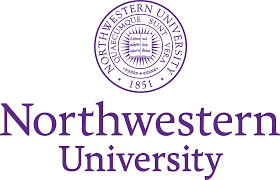
NWU o-SOEC
| Project ID | b612e377-eb4e-4329-9228-e820a62fe0eb |
|---|
Degradation Characterization and Modeling of a New Solid Oxide Electrolysis Cell Utilizing Accelerated Life Testing
Recipient Northwestern University/NWU (PI: Scott Barnett)
Water Splitting Technology HTE
Status Awarded
Abstract Solid oxide electrolysis cells (SOECs) have the potential to produce hydrogen at lower overpotential than other methods, thereby providing energy efficiency values exceeding 90%. Since the input electrical energy is a dominant cost of electrolytically-produced hydrogen, this is an important advantage of SOECs for reaching the hydrogen cost target of < $2/kg. However, high capital cost and long-term durability remain serious issues. The proposed project takes direct aim at this problem using a combined experimental and theoretical approach to provide new insights into SOEC degradation mechanisms, provide a methodology for predicting long-term durability based on accelerated testing, and develop SOECs that optimize both performance and long-term durability.
We will utilize a well-vetted accelerated testing approach that combines electrochemical life testing with quantitative structural and chemical evaluation. The work will be carried out using the promising new SOECs developed at Northwestern University. A wide range of SOEC operating conditions will be tested in order to probe for different degradation mechanisms and to show how to best operate SOECs in order to minimize degradation while maintaining high performance. The experimental data will be utilized to determine the major degradation mechanisms, and theory developed that accurately predicts SOEC long-term durability. The theory will then be able to accurately predict durability to much longer times than the relatively short accelerated tests, up to and beyond the 40,000 h desired lifetime of SOECs. Furthermore, the theory will provide new insights into means for improving performance and durability by alterations in the SOECs. Based on this, improvements in the SOECs will be made including new materials and processing methods.
The proposed project will provide important new insights into degradation mechanisms and how to mitigate them, and will produce a predictive theory that will be useful to many groups actively developing this technology. In addition, the results will be directly applied to improve the long-term performance of the promising new SOECs developed at Northwestern University.
